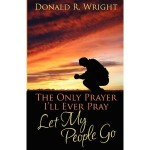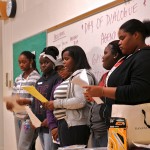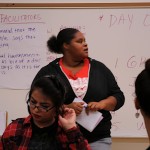By Frederick Sparks

A Brandeis University study found that the gap in racial wealth has tripled since the Reagan era, The gap between black and white wealth rose from $85,000 in 1984 to $236,500 in 1989, with the median net worth for white households at $265,000 versus $28,500 for black households. The research reveals that the disparity in home ownership is a significant factor, with the homeownership rate for whites being 28% higher than the comparable rate for blacks. The study notes the higher rate of home equity growth for whites is attributable in part to the historical wealth advantages that make it far likely for white homeowners to receive family assistance or inheritance that allow them to both purchase their first homes sooner and make larger down payments and upfront payments which lower interest paid, as well as residential segregation which places a cap on home equity in majority black neighborhoods. The disparities have also been exacerbated by the Great Recession and accompanying meltdown in the housing market.
Against this backdrop the Supreme Court is in the process of considering the constitutionality of provisions of the Voting Rights Act that require states and municipalities with a history of racial discrimination to seek preclearance from the Justice Department or a federal court before making changes to their voting laws. Despite well-known voting problems during the most recent presidential election that appeared to disproportionately impact black voters, the plaintiffs are arguing that these enforcement positions are no longer necessary. And Supreme Court Justice Antonin Scalia called the repeated reauthorization of Section 5 of the voting rights act “a perpetuation of racial entitlement” which creates a situation that would spell political suicide for any poor politician voting against it. Scalia’s comments so shocked fellow Justice Sonia Sotomayor that in the final moments of closing arguments she asked one of the lawyers for the challengers if he agreed with Scalia’s description of “racial entitlement”; the lawyer declined to endorse Scalia’s statement.
Sotomayor also had perhaps the best comment of the day, directed towards attorneys representing Shelby County, Tenn, which is seeking to overturn the enforcement provisions : “Assuming I accept your premise, and there’s some question about that, that some portions of the South have changed, your county pretty much hasn’t,” Sotomayor said of Shelby County, which is 90 percent white. “In the period we’re talking about, it has many more discriminating -- 240 discriminatory voting laws that were blocked by Section 5 objections. … You may be the wrong party bringing this.” Thank you, wise Latina.
Handicappers however place the odds fairly high that Shelby county will prevail, given the 5 “conservative” justices who appear lined up to rule in their favor.










